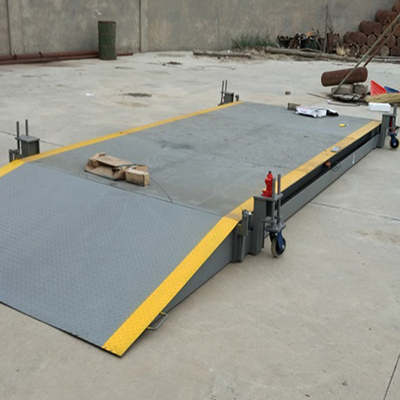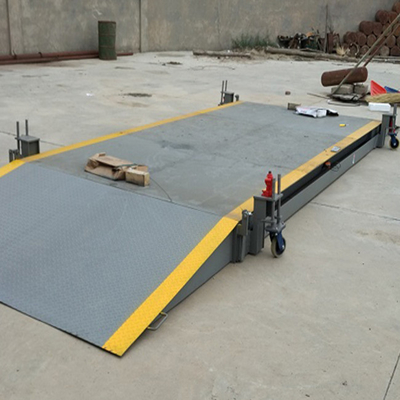-
Condensate Water Recovery Device
-
Reverse Osmosis Equipment
-
Fully Automatic Water Softener
-
Industrial Sand Filter
-
Water Supply Equipment
-
Chemical Dosing Device
-
Container Flipper
-
Container Loading and Unloading Machine
-
Truck Flipper
-
Electric Transfer Cart
-
Electronic Weighbridge
-
Mobile Loading Dock Ramp
-
Air Compressor Heat Recovery
-
Water Treatment Accessories
Precision Class III Weighbridge Electronics 10t To 200t Capacity Intelligent Voice And Digital Display

Contact me for free samples and coupons.
Whatsapp:0086 18588475571
Wechat: 0086 18588475571
Skype: sales10@aixton.com
If you have any concern, we provide 24-hour online help.
x| Features | Automatic Vehicle Identification, Intelligent Voice And Digital Display | Accuracy Class | Class III |
|---|---|---|---|
| Maximum Weighing Capacity | 10t~200t | Brand | Tonglida |
| Origin | Taian, Shandong | Length Range | 4m~35m |
| Width Range | 2m~4.5m | ||
| Highlight | weighbridge electronics 10t,class iii weighbridge electronics,precision computerized weighbridge |
||
Product Description:
An electronic scale (also known as an electronic weighbridge) is a professional weighing tool that is used to measure weight based on the principle of strain gauge measurement.
It is an essential tool for businesses that require large-scale weighing capabilities. Our company specializes in offering three types of electronic scales: electronic scales, mobile electronic scales, and electronic truck scales.
This system integrates multiple features including video surveillance, large-screen display, automatic vehicle identification, intelligent voice, traffic light barrier control, infrared grating positioning, and host computer systems.
It can achieve automatic and reliable collection of measurement data, automatic determination of tare weight, automatic guidance, automatic processing, and automatic control throughout the weighing process.
This system greatly reduces the disadvantages and workload associated with manual operations while enhancing the system's level of informatization and automation.
When a vehicle drives onto the platform, the weight of the vehicle is transferred to the weighing sensors through the load-bearing structure under the influence of gravity.
This causes deformation in the elastic material of the sensors, resulting in an unbalanced state in the strain gauge bridge attached to the elastic material.
The output signal from the strain gauge bridge is proportional to the weight of the vehicle. The signal is then amplified by a linear amplifier, converted into a digital signal through an A/D converter, processed by a processor, and displayed as weight data.
Features:
Automatic vehicle identification, intelligent voice and digital display
Technical Parameters:
Data collection is streamlined with the use of automatic systems, which means there is less need for manual intervention. This not only improves the accuracy of data collection, but also allows for real-time monitoring and analysis of the data. All of these benefits are possible due to the advanced technology that is used.
The weighing processes are greatly accelerated with the use of these systems, which in turn leads to an enhancement in production efficiency. This is because the automated processes are able to perform tasks at a much faster rate than human operators would be able to. In addition, the advanced technology reduces the likelihood of errors that can occur during manual processes.
In order to prevent cheating and standardize weighing procedures, the systems are designed to be tamper-proof and prevent any sort of manipulation. This results in a more reliable system, and also prevents any loopholes from being exploited.
Centralized management of truck scales allows for a much easier and efficient management system. Rather than having multiple scale operators, the use of advanced technology allows for one person to manage multiple scales. This not only reduces the burden on the company, but also makes the system less vulnerable to error or fraud.
The installation of self-service man-machine interaction systems is another way in which the system has been improved. This replaces the weighbridge office, leading to cost savings for the company. In addition, the centralized installation of equipment makes management much easier, and also prevents the possibility of human sabotage.
The ability for scale operators to work remotely is a major advantage of the system. This allows for unattended operation of the truck scales, which in turn avoids direct contact between drivers and scale operators. This improves the working environment for scale operators and also leads to a more efficient system overall.
The use of advanced technology also enables remote card reading during vehicle movement. This allows for the use of ceramic RFID cards with anti-tampering features, which eliminates any potential cheating through card swapping or license plate manipulation. This greatly enhances the overall management of weighing vehicles, achieving seamless integration between the vehicle and the card.
Finally, the ability to customize additional features based on enterprise requirements allows for a more seamless integration with production systems and other systems. This means that the system can be tailored to meet the specific needs of the company, resulting in a more efficient and effective system overall.
Applications:
Logistics centers need to weigh incoming and outgoing goods. The traditional weighing method can be time-consuming and inaccurate. However, the use of electronic truck scales has significantly enabled fast and accurate weighing of goods. This not only improves efficiency but also reduces the risk of errors.
In the freight industry, goods need to be weighed during loading and unloading. Weighing using traditional methods can be labor-intensive and time-consuming, affecting the overall productivity of the company. By using electronic truck scales, the weighing process is simplified, reducing workload, and improving overall efficiency.
Coal enterprises need to weigh coal before transportation to determine the quantity, which directly affects the company's profitability. Weighing coal using traditional methods is challenging, and errors may be costly. By using electronic truck scales, the process of weighing becomes more efficient and accurate, making it easier to keep track of inventory, ensuring profitable operations.
In the building materials industry, transported materials need to be weighed to ensure accurate inventory and determine the pricing. Traditionally, weighing equipment was bulky, expensive, and required trained personnel. With the use of electronic truck scales, companies can improve efficiency and reduce labor and resource costs.
The chemical industry requires precise weighing of raw materials, as slight errors can lead to significant losses or safety hazards. Using manual scales may result in human errors, but utilizing electronic truck scales eliminate such risks and enhance production efficiency. Therefore, electronic truck scales are an ideal option for industries that require accuracy, efficiency, and safety.




